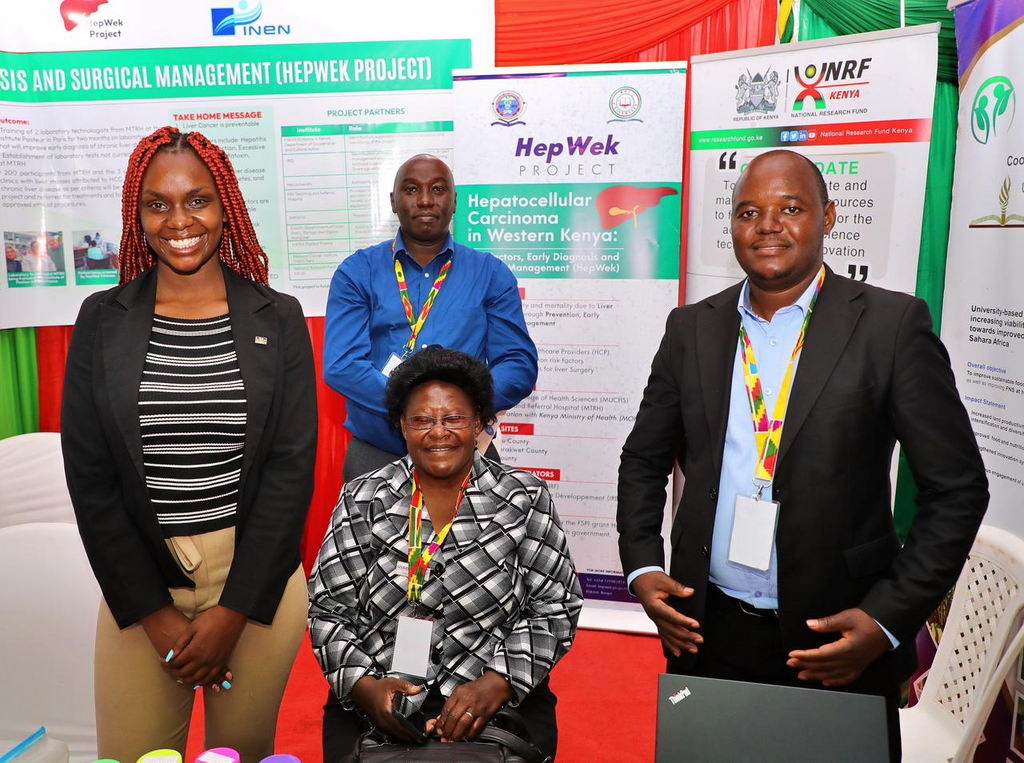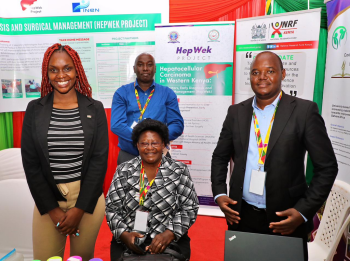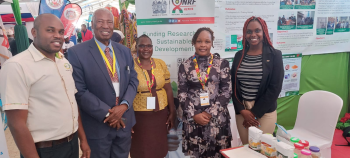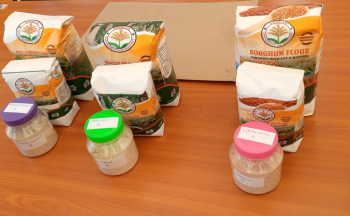
University based Community Action Research for increasing viability of cereal-legume value chains towards improved nutrition and livelihood in Sub- Sahara Africa (UniCARSSA) Project
Principal Investigator: Dr. Abigael Otinga
The University based Community Action Research for increasing viability of cereal-legume value chains towards improved nutrition and livelihood in Sub- Sahara Africa (UniCARSSA) project links smallholders and Rural entrepreneurs directly with universities in platforms for action to share currently available technologies as it tries to adapt farmers to local conditions and encouraging them to utilize new technologies in their farming activities.
Here at University of Eldoret, the UniCARSSA Project Principal Investigator is Dr Abigael Otinga. The project is funded within the framework of ‘LEAP-Agri’ which is a partnership of 19 European and African countries and the EU. The partnership is aimed at research and innovation for food and nutrition security as well as sustainable agriculture, including aquaculture and was endorsed by the EU-Africa Summit 2014. The instrument is an ERA-NET co-fund, a partnership financed by Ministries from these countries (Kenya, included under NRF) and co-funded by the European Commission supporting the implementation of the EU-Africa High Level Policy Dialogue on Science, Technology and Innovation (STI).
UniCARSSA is implemented under four work packages (WP) viz; WP 1 - Increased and diversified food production; WP 2 - Exploring diversity in cereal-legume product consumption and utilization; WP 3- Strengthening of local nutrition-sensitive value chains through research and capacity building of rural entrepreneurs (individuals and SMEs) and WP 4 - Engagement of universities with local stakeholders through platforms for action research. The project works to enhance food and nutrition security that is severely elusive on the African continent. Crops grown on nutrient deficient soils are of low quality with low yields and food produced from such soils cannot meet the everyday dietary requirements of both adults and children. In Kenya, the high consumption of cereals such as maize, sorghum and millet grown on nutrient deficient soils and specifically micronutrients inadvertently leads to hidden hunger and malnutrition in the population. Zn deficiency is one such example. Therefore, to produce crops with adequate minerals for consumption, low fertility soils have to be adequately replenished to ensure that crops have increased mineral nutrient content. This research work was conceptualized on the premise that ‘we are what we eat’ and crops grown on deficient soils will ultimately be of poor quality with paucity of nutrients. Under WP 1, soil scientists Dr. Abigael Otinga and Dr. Ruth Njoroge worked on replenishing soil fertility in the poor soils of western Kenya and narrowed the focus to the micronutrient Zn following it from the soil to the table. Soils were supplied with Zn at 0, 1.5 and 3 t ha-1 of ZnO fertilizer and planted with maize and sorghum and soybeans. Grains from crops planted on soils that received Zn at the two rates had increased Zn content. These grains were used to prepare composite flours and nutrient analyses revealed an enhanced Zn content. WP 2 led by Dr. Charlotte Serrem and Dr. Gertrude Were then developed a nutrient dense and sensory enhanced sorghum (Sorghum bicolor (L.) Moench) based stiff porridge (Ugali) for young children through an MSc. student Emily Kimaiyo, using the Zn enhanced flours from WP 1. The product line with three variations- pure maize, pure sorghum and maize-sorghum- enhanced with nutrients from the indigenous vegetable black night shade is dubbed SONLIK and is currently under evaluation for patenting.
The project being a collaboration between European and African Countries is domiciled under the National Research Fund (NRF); a State Corporation established under the Science Technology and Innovation (ST&I) Act No. 28, Section 32 of 2013 participated in the Council of Governors devolution Conference. During this year’s Council of Governors (CoG) in Kenya 8th Devolution Conference 2023 held between the 15th and 19th of August 2023 in Eldoret, Uasin Gishu County themed ‘10 Years of devolution: The Present and the Future’ and the sub-theme: Driving Transformation from the local level: County Governments as the Centre of economic development, NRF invited and facilitated the participation of members of the UniCARSSA Project to display SONLIK. The three variations of SONLIK were displayed at the NRF stand through Dr Charlotte Serrem and Emily Kimaiyo who attended the conference held at Eldoret Sports Club. SONLIK elicited great interest among the general public who wished to buy it. The product was also of great interest to Non-Governmental Humanitarian Organizations such as the Action against Hunger Programme. The University of Eldoret was advised to consider commercializing the product once issues of intellectual property rights had been sorted out.




